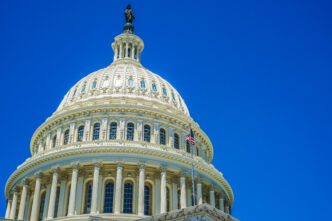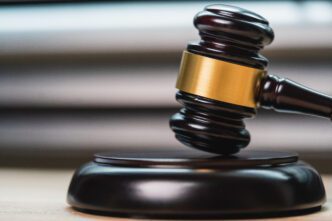Amidst the upcoming presidential inauguration, lawmakers are preparing for the possibility that Donald Trump might pardon over 1,500 individuals implicated in the January 6 Capitol riot. This potential move, which Trump has suggested could occur quickly after taking office, is generating significant discussion among political leaders.
During a recent appearance on NBC’s ‘Meet the Press,’ Trump stated his intention to issue pardons on ‘Day 1’ of his presidency. He mentioned that while most individuals would likely be pardoned, there would be exceptions for those deemed ‘radical or crazy.’ The prospect of such pardons is central to the current political discourse, as lawmakers convene to certify a presidential election for the first time since the 2021 Capitol breach.
Rep. Marjorie Taylor Greene has been actively advocating for blanket pardons, arguing that the justice system has been unequal and those involved have served sufficient time. Many Republicans, however, including Rep. Jim Jordan, suggest reviewing pardons on an individual basis, particularly differentiating between violent and non-violent participants.
The events of January 6 involved over 1,250 guilty pleas or convictions, with more than 650 individuals receiving sentences ranging from a few days to over 20 years. Many involved were motivated by Trump’s fraudulent election claims, calling out names of prominent politicians like Nancy Pelosi and Mike Pence during their actions.
Law enforcement officers who defended the Capitol are particularly concerned about the pardon talks, having sustained significant injuries during the riot. Notably, former Capitol Police Sgt. Aquilino Gonell voiced strong opposition to pardons, emphasizing the betrayal of law enforcement trust.
Certain Republicans are cautious, with Rep. Dusty Johnson and Rep. Gus Bilirakis advocating for case-by-case evaluations. They acknowledge differences in culpability, particularly between property damage and assaulting officers, while maintaining a firm stance against pardoning those who harmed law enforcement.
Conversely, Democrats express worry about the implications of mass pardons on national security and the rule of law. Rep. Bennie Thompson and Rep. Jamie Raskin highlighted the dangerous precedent such actions could set, particularly regarding the impact on future political climates and public safety.
Rep. Jim Himes, who experienced the January 6 events firsthand, described the emotional challenge of potential pardons, underscoring personal experiences with the convicted. The discussion reflects broader concerns about accountability and the potential consequences of undermining legal proceedings.
As the nation approaches a significant transition, the potential for January 6 pardons remains a contentious issue among lawmakers. The decisions made could have far-reaching effects, impacting not only those directly involved but also the broader principles of justice and accountability.
Source: News4jax








